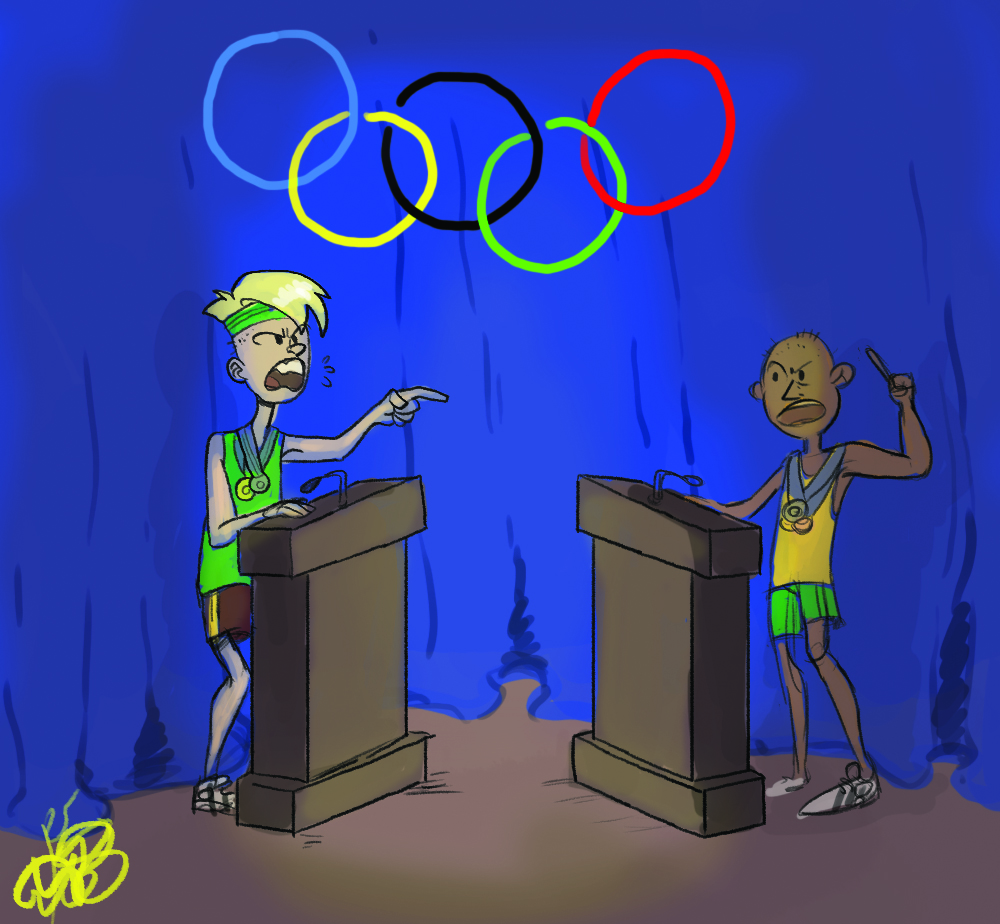Munirul-Haq Raza | News Editor
Featured image | Rowan Campbell
There has been a push to make the Olympics an event free from politics, where athletes from all around the world can put their respective countries’ differences aside, and simply compete for the sport. While this idea sounds laudable, it is not historically grounded.
The most recent iteration of this discussion came when U.S. Vice President Mike Pence did not stand for the North Korean anthem; a considerably hypocritical move from Pence, who previously left the stadium during an NFL game this past season, due to black athletes refusing to stand during the U.S. national anthem as a protest against police brutality.
The problem with this narrative is that the Olympics do not occur in a vacuum; they’ve always been an inherently political event. The Olympics are often a celebration of nationalism, able to inspire a country’s pride. One can critique Pence and his hypocrisy without being ahistorical.
An apolitical Olympics ignores the 1976 boycott of the Olympics by mostly African nations in protests of the inclusion of New Zealand, whose rugby team was touring in South Africa during apartheid.
Athlete Muhammad Ali, as a diplomat for the U.S., would attempt to initiate a boycott of the 1980 Olympics in Moscow, due to the USSR’s invasion of Afghanistan.
An apolitical Olympics would have deprived us of many defining historical moments, such as when Jesse Owens, an African-American, won four gold medals, crushing the notion of Aryan supremacy in Hitler’s Nazi Germany, where the 1936 Olympics were hosted—that same year, Owens was excluded from an event at the White House honouring Olympic athletes.
During the 1968 Summer Games, two black athletes, John Carlos and Tommie Smith, raised their fists on the podium as a way of protesting racism in the U.S. Smith and Carlos were inspired by figures like Muhammad Ali, Malcolm X, and Martin Luther King, Jr.
Peter Norman, a white Australian, supported them by wearing an Olympic Project for Human Rights badge. For this, they were booed, and people screamed the national anthem at them. Carlos and Smith were punished swiftly, and were ordered to leave the Olympic stadium, removed from the Olympic Village, and suspended from the national team. All three faced severe criticism back home.
More recently, the 2010 Olympics in Vancouver that faced Indigenous protests were also criticized due to Prime Minister Stephen Harper’s government looking to reflect their agenda during the opening ceremonies.
We should accept that politics is integral in all facets of life, and the Olympics are no exception. Instead of ignoring politics in sports, we should be asking what politics we are already embracing in them.




